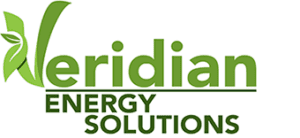Solar Options for Your Home
Welcome to the future of energy consumption! Solar energy—clean, renewable, and abundant—is revolutionizing how homeowners across the United States power their homes. With countless benefits, it’s no wonder more families are embracing the solar movement.
Imagine lower energy bills, a reduced carbon footprint, and an increase in your property value. These are just a few of the rewards of transitioning to solar energy. Whether you’re considering solar panels, battery storage, or a full solar energy system, now is the perfect time to take the first step toward energy independence.
Why Go Solar?
Solar power is more than just an eco-friendly choice. It offers tangible financial and lifestyle benefits, including:
- Lower Electricity Bills: Producing your own energy reduces reliance on the grid, leading to substantial monthly savings.
- Increased Home Value: Solar-equipped homes are in high demand for their energy efficiency and environmental benefits.
- Energy Independence: Solar panels and battery storage provide a stable energy source, even during outages.
- Tax Incentives and Rebates: Many states offer financial incentives to make solar power more affordable.
- Environmental Impact: Using renewable energy reduces greenhouse gas emissions and helps combat climate change.
How Do Solar Panels Work?
Solar panels harness sunlight and convert it into electricity using photovoltaic (PV) cells. Here’s how it works:
- Absorption: The PV cells absorb photons from sunlight, which excites electrons in the silicon layers.
- Electric Current Generation: This movement of electrons generates direct current (DC) electricity.
- Conversion to Usable Power: An inverter transforms DC electricity into alternating current (AC), which powers your home appliances.
By producing your own energy, you not only lower your utility bills but also contribute to a cleaner, more sustainable future.
Understanding Solar Installation Costs
Investing in solar panels involves upfront costs, which are offset by long-term savings and incentives. Key factors influencing the cost include:
- Solar Panels: Prices vary based on brand, efficiency, and size.
- Inverters: Required to convert DC electricity into usable AC power.
- Mounting Hardware: Ensures panels are securely attached to your roof.
- Labor: Professional installers handle the technical aspects of the installation.
- Permits and Paperwork: Local authorities may require specific permits, which your installer can help obtain.
Maximizing Financial Benefits
Take advantage of federal and state incentives to reduce the overall cost of going solar:
- Federal Investment Tax Credit (ITC): Deduct a significant percentage of installation costs from your federal taxes.
- Net Metering: Receive credits for excess energy your system generates and feeds back into the grid.
- Local Rebates: Check with your utility provider or local government for additional rebates and programs.
The Solar Installation Process
Switching to solar involves a straightforward process:
- Consultation: A professional will assess your home’s solar potential and energy needs.
- Design: Your solar system is customized for maximum efficiency.
- Permitting: Necessary paperwork is submitted to local authorities.
- Installation: Panels and equipment are professionally installed.
- Connection: The system is connected to your utility grid or battery storage system.
Solar Energy: A Nationwide Opportunity
From sunny deserts to cloudy climates, solar energy is viable almost everywhere in the U.S. Advances in technology allow solar systems to generate power even on overcast days, ensuring consistent energy production.
Take the First Step Toward Solar Power
Whether you’re drawn by the financial savings, environmental impact, or energy independence, going solar is a smart choice for homeowners. Consult with a reputable solar installer to explore your options, understand available incentives, and embark on a cleaner, brighter energy future for your home.
With solar power, you’re not just investing in your home—investing in a sustainable future for generations.

